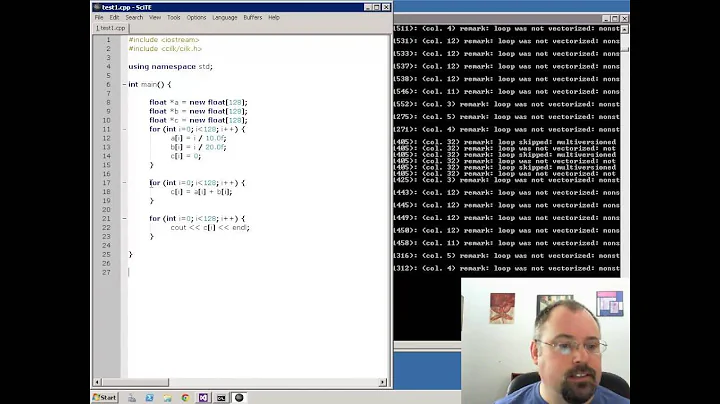Unlock Better Performance with AMD Radeon 21.3.1 Drivers and Stress Test
Table of Contents
- Introduction
- AMD Adrenaline Drivers 21.3.1
- Release Notes
- Fixed Issues
- Known Issues
- The Juicy Part: The Disclaimer
- New Features and Performance Improvements
- Conclusion
Introduction
In this article, we will be discussing the AMD Adrenaline Drivers version 21.3.1. These drivers bring numerous fixes and enhancements, as well as some exciting new features. We will dive into the release notes, explore the fixed and known issues, and take a closer look at a particularly interesting disclaimer. Finally, we'll discuss the performance improvements and overall impressions of these drivers.
AMD Adrenaline Drivers 21.3.1
The AMD Adrenaline Drivers version 21.3.1 is the latest update from AMD for their graphics cards. As Mentioned earlier, these drivers bring a plethora of fixes and improvements to enhance performance and stability. Let's delve deeper into what this update has to offer.
Release Notes
The release notes for the AMD Adrenaline Drivers 21.3.1 are quite extensive, indicating a significant amount of changes and additions. One of the highlights of this update is the added support for the AMD RX 6700 series graphics cards. Additionally, several key features have been introduced, including support for Doom Eternal Ancient Gods Part 2, Radeon Boost, and Radeon Anti-Lag with DirectX 12.
Fixed Issues
The AMD Adrenaline Drivers 21.3.1 address various fixed issues that users have been experiencing. One notable fix is related to the Radeon Software, which previously caused higher-than-expected CPU utilization even when the system was at idle. This issue has now been resolved, providing a smoother and more efficient experience.
Another significant fix is related to Oculus headsets. Users were encountering system hangs or crashes when upgrading the Radeon software while an Oculus headset was connected. With the latest update, this problem has been rectified, ensuring seamless compatibility between AMD graphics products and Oculus devices.
Known Issues
As with any software update, there are still a few known issues that users should be aware of. For example, enabling V-Sync in Rocket League and setting the Game to use borderless fullscreen mode may result in stuttering or ghosting. Additionally, some users of the RX 400 and 500 series graphics cards may experience extended periods of video playback causing system instability. While these issues are not ideal, it's important to note that AMD is actively working to address them in future updates.
The Juicy Part: The Disclaimer
Now, let's discuss a rather interesting part of the AMD Adrenaline Drivers 21.3.1 update – the disclaimer. This disclaimer states that overclocking AMD processors, including altering clock frequency, multipliers, or memory timings/voltage beyond their stock specifications, will void any applicable AMD product warranty. While this may not come as a surprise to some, it raises some points of contention.
It's understandable that altering CPU frequencies and voltages can result in potential damage or degradation, voiding the warranty. However, the mention of memory timings and voltage seems unnecessary. Changing memory timings alone does not pose a significant risk to the CPU's longevity or performance. In fact, AMD themselves recommend higher memory frequencies for optimal performance, contradicting their own warranty policy.
It's important to note that AMD or any other manufacturer cannot easily prove that an individual has overclocked their CPU, apart from extreme cases involving high voltages. The inclusion of such a disclaimer, particularly regarding memory timings, seems more like a formality than a practical limitation.
New Features and Performance Improvements
Apart from the disclaimer, the AMD Adrenaline Drivers 21.3.1 bring a host of new features and performance improvements. One notable addition is the performance tuning stress test. This built-in tool enables users to determine the stability of their GPU overclocks. By selecting the desired stress test duration, users can evaluate the performance and stability of their overclocked settings.
Additionally, there have been improvements in Vulkan API support and several bug fixes that address issues such as black screens, system hangs, and enhanced sync compatibility in certain Vulkan API games. These fixes contribute to a more enhanced and streamlined gaming experience for AMD graphics card users.
Furthermore, the updated drivers introduce auto overclocking, auto memory overclocking, and auto undervolting features. These additions allow users to maximize the performance potential of their AMD graphics cards effortlessly. The inclusion of real-time core and junction temperature monitoring further enhances the customization options available to users.
Conclusion
In conclusion, the AMD Adrenaline Drivers 21.3.1 bring a range of improvements and fixes that enhance the overall performance and stability of AMD graphics cards. Although the disclaimer regarding overclocking may raise some concerns, the new features and performance improvements outweigh this issue. With Vulkan API optimizations, bug fixes, stress testing capabilities, and additional overclocking features, these drivers offer an enticing upgrade for AMD graphics card users. As always, it is advisable to keep your drivers up to date to ensure an optimal gaming experience.
 WHY YOU SHOULD CHOOSE TOOLIFY
WHY YOU SHOULD CHOOSE TOOLIFY

























